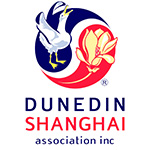Tuesday 28 May 2019
By definition, a name is something which we attach meaning to. Those meanings are often connections endowed or imposed by history. They can also be meanings we create.
After the Christchurch events on 15 March, should we retain the name “Crusaders” for the city’s rugby team?
When most people use the word Crusade, they no longer think of the historical religious war waged between Christians and Muslims. Dictionaries indicate that a “crusader” is someone who works hard or campaigns forcefully for a cause, or for political or social change.
No doubt the spirit of perseverance and strength is the reason for the choice of name. The team’s logo is a pictorial representation of that spirit.
While the connection to that part of history may be there, I believe the connection to religion is no longer. It is not necessary for one to be a Christian to be a Crusader player or supporter. In my view, the name Crusader is no more anti-Muslim than pro-Christian.
March 15 obviously adds a new context to our relationship with the Muslim communities. It has the capacity to throw a different light on a term or a name.
So, while there is no anti-Muslim connotation in the modern usage of Crusade or Crusader, it may be time to consider whether it is more appropriate to use a different name to represent that spirit given the new association.
Ultimately, perception is in the eye of the beholder.
This brings me to the second name which features much in the news headlines this year – Huawei.
In the West, most of us know of Huawei as a cell phone manufacturer. Through recent events, we become aware that Huawei is in fact a leading global information and communications technology (ICT) solutions provider. It is now competing with other global players to provide new 5G infrastructure network services to the main western countries. There have been implications of connections between Huawei and the Chinese government, and security concerns in allowing Huawei to provide the new 5G network services. Google is now complying with the ban placed by the Trump administration to bar US companies from supplying technology to Huawei on the grounds that the White House considers it a security threat.
So what does the name Huawei mean in China? In the Chinese language, Hua means Chinese and Wei means achievement.
Huawei’s founder, Ren Zhengfei, has said the company’s name came from a patriotic slogan he saw on a wall one day: “China makes a difference”.
For many years, Huawei struggled with the idea of whether the name should be changed to a western name. At the end, the decision was made to retain the name, and to teach non-Chinese how to pronounce it.
Huawei’s Founder Ren’s rags to riches story is legendary in China. He grew up poor in a remote mountainous town in Guizhou, and later joined the military by chance. After leaving the army he started a company with 5 investors with the equivalent of around NZ$9,000 and no obvious plan. These days Huawei is the world’s largest telecommunications equipment maker. It is in the top Fortune 100 companies.
Putting it in a different way, to many Chinese in China, Huawei’s founder Ren may be a bit like Sir Edmund Hillary to us. He has created a globally successful business which is proudly Chinese, in name and in substance. Huawei now dominates the smartphone market, even in China itself. In the ICT area, China now considers that it is at the top of the world.
How the West approaches Huawei no doubt will have a symbolic meaning to Chinese in China.
Huawei’s latest slogan is “make it possible”. I watched a marketing video of this slogan. Reaching your potential despite doubts and adversity is the sentiment behind the current marketing of the Huawei brand. This sentiment has the ability to galvanise a nation which is looking for proper recognition of its place in the world. Even for a nation without democracy, its people’s sentiments still play a powerful role in shaping its government’s focus. Alternatively, it can be a powerful weapon wielded by its government in its relationship of trade with the rest of the world.
Teresa Chan is the current Chair of the Dunedin Shanghai Association. Her legal practice deals with many Chinese and international clients.
The above article was published in the Otago Daily Times in the Opinion Page on 28 May 2019.
KEYWORDS: Crusaders, Huawei, branding, cultural difference, Chinese name

